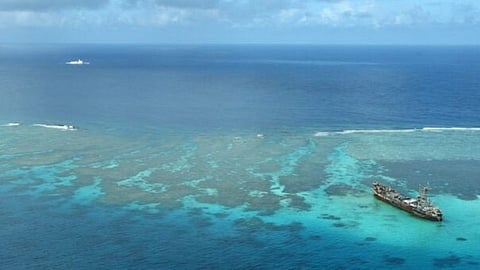
- NEWS
- the EDIT
- COMMENTARY
- BUSINESS
- LIFE
- SHOW
- ACTION
- GLOBAL GOALS
- SNAPS
- DYARYO TIRADA
- MORE

President Ferdinand “Bongbong” Marcos Jr. said the new landmark maritime laws “serve a purpose” in identifying boundaries within the Philippines’ sovereignty.
This came after China opposed the enactment of the two laws, namely the Maritime Zones Act and the Archipelagic Sea Lanes Act.
Marcos signed the measures on 8 November, shortly after China summoned the Philippine Ambassador to China to express their objection.
“Well, it’s not unexpected,” Marcos told Palace reporters. “We say we have to protect our sovereign rights and sovereignty.”.
“So, it serves a purpose that we define closely what those boundaries are, and that’s what we are doing,” he added.
Under the Maritime Zones Act, the Philippines reaffirms its rights over territories that are within the jurisdiction of the country.
It is enacted in accordance with the standards set by the United Nations Convention on the Law of the Sea (UNCLOS).
On the other hand, the Philippine Archipelagic Sea Lanes Act establishes a system of sea lanes and air routes in which foreign vessels and aircraft can traverse to and from the Philippine coasts and ports.
